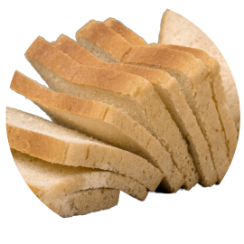
Vitamin D Study
This study aims to improve wintertime vitamin D status in older adults using a vitamin D-
fortified bread.
About the UCD VitD-DPI-OASIS Study
Researchers at the University College Dublin (UCD) Institute of Food and Health, a nd
nd
University College Cork Centre for Vitamin D and Nutrition Research are conducting a study which aims to improve wintertime vitamin D status in older adults using a vitamin D- fortified bread. The VitD-DPI-OASIS study is led by researchers at University College Dublin and University College Cork with collaborators in Teagasc Agriculture and Food Development Authority and Aryzta Food Solutions. Aryzta Food Solutions will help to make the bread for the study; however, will have no commercial gain from the study. This project is funded by the Department of Agriculture, Food & Marine, Ireland. Dr Aifric O’Sullivan, Prof Eileen Gibney and Malak Ali are conducting the study in UCD’s Institute of Food and Health.
Complete the questionnaire here to take part:
(opens in a new window)https://ucc.
Why have you been invited to take part in this research study?
We are seeking healthy adults aged 65 and over to participate in this study.
What will happen if you decide to take part in this research study?
Screening (approx. 20 mins)
If you express an interest in the study, a researcher will explain the 10-week study to you in detail and will send you a copy of the participant information leaflet and consent form. If you wish to continue, you will complete a screening questionnaire online or over the phone with a researcher (depending on your preference) to determine your eligibility to participate. This screening questionnaire will include general questions on medical conditions with tick box answers, if you answer yes to any medical conditions you will be asked to provide some detail on them. You will not be eligible to participate if you regularly consume a single high dose vitamin D supplement (>10µg/d equivalent), are exposed to factors that may influence vitamin D status, such as winter sun holiday, tanning beds etc. during the course of the study, if you have any known food allergies or are following a medically prescribed diet, have a medical condition or are taking medications that could impact your participation in the study, if you have regular excessive alcohol intake (≥28 units per week), cannot read, write or understand English or are participating in another research study with an intervention or other lifestyle programme that would interfere with the outcomes of the study. If you are eligible and willing to participate you will be asked to sign the VitD-DPI-OASIS study consent form at the beginning of your study visit.
Baseline visit (Week 0 - approx. 1 hour)
If you are eligible based on the screening questionnaire, you will be asked to attend a baseline visit at UCD Institute of Food and Health in the morning following an overnight fast. Before you begin your first visit, a researcher will read the consent form with you and if you are happy to continue, you will sign the informed consent form. Then, you will be randomly allocated to either the fortified bread or the unfortified (control) bread study group, however, to avoid bias you will not know which group you are in. A researcher will inform you about the study procedures, review the participant information leaflet with you, and you will have the opportunity to ask any questions or request further information. At this visit a researcher will take your height, weight and blood pressure measurements and a nurse will take a blood sample. We will give you a small breakfast after your blood sample collection and then we will ask you to complete Food Frequency Questionnaire (FFQ) with the researcher. The FFQ is a record of food and beverages consumed over the previous month. You will be presented with a list of foods and asked to record the frequency of consumption from the following options: Never in the past month, 1-3 per month, once per week, 2-4 per week, 5-6 per week, once per day, 2-3 per day, 4-5 per day, 6+ per day. This questionnaire will take approximately 25 minutes to complete. We will also ask you to record your diet at home on two different days. We expect each dietary record will take about 20 minutes to complete. You will then be given additional dietary advice, and you will receive your allocated study bread to consume daily for the next 10 weeks.
randomly allocated to either the fortified bread or the unfortified (control) bread study group, however, to avoid bias you will not know which group you are in. A researcher will inform you about the study procedures, review the participant information leaflet with you, and you will have the opportunity to ask any questions or request further information. At this visit a researcher will take your height, weight and blood pressure measurements and a nurse will take a blood sample. We will give you a small breakfast after your blood sample collection and then we will ask you to complete Food Frequency Questionnaire (FFQ) with the researcher. The FFQ is a record of food and beverages consumed over the previous month. You will be presented with a list of foods and asked to record the frequency of consumption from the following options: Never in the past month, 1-3 per month, once per week, 2-4 per week, 5-6 per week, once per day, 2-3 per day, 4-5 per day, 6+ per day. This questionnaire will take approximately 25 minutes to complete. We will also ask you to record your diet at home on two different days. We expect each dietary record will take about 20 minutes to complete. You will then be given additional dietary advice, and you will receive your allocated study bread to consume daily for the next 10 weeks.
Checkup (via phone call) (week 2.5 and 7.5 approx. 30 mins)
The researcher will arrange a phone call with you to see how you are getting on with the study at week 2.5 and again at week 7.5. During this phone call, they will ask you questions on if there have been any changes to your health status, medical history, or medication and supplement use. You will also receive diet counselling, reiterating the changes required to your usual diet to ensure you are staying on track.
Endpoint visit (Week 10-approx. 1 hour)
Following the 10-week study period, the study team will schedule your final visit to UCD. At this visit a researcher will complete another Food Frequency Questionnaire with you, and take the same height, weight and blood pressure measurements, and a nurse will take a fasting blood sample. We will also ask if you would like to complete an optional exit interview.
What are the benefits of taking part in this research study?
If you decide to take part, you will be contributing to research which is aiming to improve knowledge on vitamin D fortified foods in older adults. You will be provided with bread throughout the study and information on other sources of vitamin D to help you make the recommended changes.
Download the participant leaflet below for more information:
vitamin_d_participation_leafletvitamin_d_participation_leaflet
Contact details and further information:
Please feel free to ask for further information before deciding if you will take part. If you want further information, you can contact the researchers at vitamind@ucd.ie or 01 716 2467.
Complete the questionnaire here to take part:
(opens in a new window)https://ucc.
